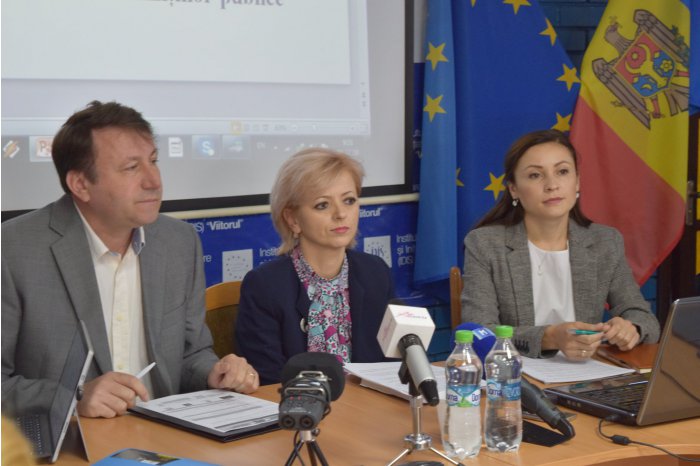New amendments to Moldova's legislation boost public procurement, more problems remain unsolved
13:32 | 05.07.2018 Category: Economic
Chisinau, 5 July /MOLDPRES/ - The last amendments to the legislation boost the public procurement, but do not ensure the settlement of more problems faced by the business and the contracting authorities. This is the conclusion reached by participants in public discussions, organized by the Viitorul Institute. Attending the event were representatives of the Finance Ministry, Public Procurement Agency, National Anticorruption Centre (CNA), European Bank for Reconstruction and Development (EBRD), contracting authorities and several companies participating in the public procurement process.
Among the main changes and completions made to the law on public procurement is the introduction of new criteria of assigning: the lowest price, the lowest cost, the best ratio quality-price, the best ratio quality-cost. Also, the possibility of increasing the value of the procurement contract up to 15 per cent, switch to communication by electronic means between the contracting authority and the economic operator. Decision-makers are to introduce the European Single Procurement Document (ESPD), provided in electronic format, which consists in the declaration on one’s own responsibility of the economic operator on the meeting of qualification and selection criteria.
The lawmakers regulated the procedures of assigning procurement contracts in the utilities sector, which will be applied by the entities which carry out relevant activities in the sectors of energy, water, transport and post. The amendments stipulate the establishment of the authorities’ right to resort to the assigning of procurement contracts in batches, in order to support the small business, as well as the right of the contracting authority, before initiating the procedure of assigning, to organize consultations of the market.
”The legislative amendments to the law on public procurement are aimed at enhancing the level of participation of the business environment, especially small and medium-sized enterprises, in public procurement procedures, strengthening the capacities of the contracting authorities in carrying out public procurement and externalization of public procurement services,” a state secretary at the Finance ministry, Victoria Pricop, has said.
MTender, which is envisaged to be implemented, is an instrument of public procurement, which “will allow us economizing financial and human resources, to enhance the increase of transparency, speed and competition of procurement,” an office head at the Finance Ministry, Iurii Cicibaba, said. He noted that the participants in the procedure can visualize and analyze procurement plans, can visualize current procedures of procurement and the documentation without payment; all operators are put in equal conditions, can place the offer online from everywhere, can see the price of the other bidders during the electronic tender. The process of selection of the winner is transparent and public, “they can resort to platform for consultancy, can also get and analyze the historical information about procurement.”
On the other hand, the contracting authorities’ representatives complained about the lack of specialists in the public procurement sector because of low salaries in the local public administrations, as well as about the fact that big companies participate in tenders organized locally and small ones from the local level cannot participate because of the impossibility to supply small qualities of products demanded.
The head of the eastern Dubasari district, Grigore Policinschi, said that “the certification of specialists in the territory is a problem. If there is a competent structure, able to take responsibility to verify and prepare those technical conditions, task notebooks, then let them do this, as the mayors from Moldova should come up with explanations at the CNA in connection with contracts on public procurement.”
Another important aspect which is not contained in the amendments proposed deals with the transparency of procurement at all stages of the cycle of a procurement, which limits the access to information and possibility of monitoring on behalf of the civil society. A recommendation to this effect deals with the clear introduction of provisions on ensuring the transparency of the announcements of intention, participation and assigning, file on procurement, contract on procurement.
The discussions with those about 60 participants took place within a project titled Innovative improvements in the public procurement system of Moldova through inclusion, creativeness and practices of observing the legislation, financed by the European Union and co-financed by UK aid, with the support of the government of the United Kingdom.
(Reporter V. Bercu, editor A. Raileanu)

